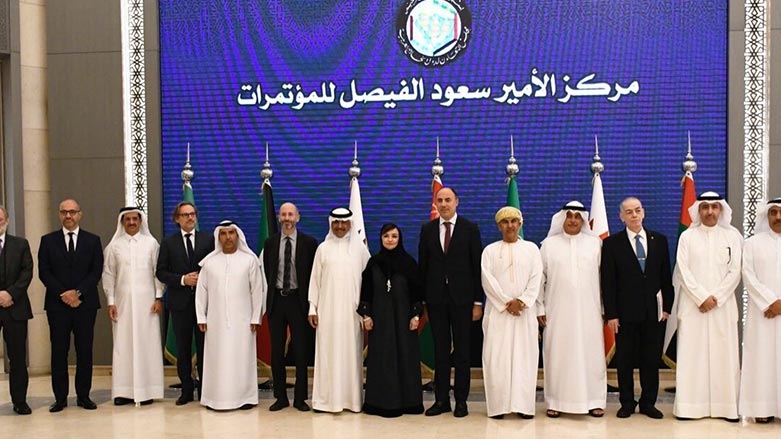US-GCC Working Group on Iran meets in Riyadh; calls on Tehran to halt malign activities

WASHINGTON DC, United States (Kurdistan 24) – Senior US officials have been in Saudi Arabia this week for a series of Working Group meetings with the six member Gulf Cooperation Council (GCC): Saudi Arabia, Bahrain, Kuwait, Oman, Qatar, and the United Arab Emirates.
The sessions are held at the GCC headquarters in Riyadh and include the Working Group on Iran, which met on Wednesday, as well as another on air and missile defense and maritime security, and a third on counter-terrorism coordination.
The Working Group on Iran is being led by the US special envoy for Iran, Robert Malley. Dana Stroul, Deputy Assistant Secretary of Defense, leads the Working Group on defense issues, while Christopher Landberg, the State Department’s Acting Coordinator for Counterterrorism leads the counterterrorism group.
The US-GCC Working Groups are an outgrowth of the GCC-US Strategic Partnership, which was established by the Obama administration, after ISIS emerged in 2014, threatening Baghdad as well as Erbil, and obliging Washington to return US forces to Iraq to fight the terrorist organization.
The last meeting of the US-GCC Working Group on Iran was held in November 2021. A second session was scheduled for last October, but the US cancelled it, after the Saudis cut their oil production.
That decision came at a sensitive time, as Europe had responded to Russia’s Feb. 24, 2022, assault on Ukraine by cutting its import of Russian energy in order to deny Moscow the revenue with which to pursue that war.
The European move had the predictable effect of raising international energy prices, and the Saudi decision exacerbated the resulting fuel shortfall. As the Saudi decision played into Moscow’s hands, it precipitated Washington’s ire.
But after a three-month delay, that meeting was held on Tuesday. Afterwards, the US and the GCC issued a joint statement, which “affirmed the long-standing partnership” between the US and the GCC members.
In that statement, the US and the GCC “condemned Iran’s continued destabilizing policies, including its support for terrorism and the use of advanced missiles, cyber weapons, and Unmanned Aircraft Systems (UAS) and their proliferation in the region and around the world”—the last words apparent reference to Iran’s provision to Russia of explosive drones, which it is using to terrible effect in Ukraine.
The two sides also “raised their grave concerns about the Iranian military’s deepening two-way cooperation with state and non-state actors, including Iran’s ongoing provision of conventional weapons, advanced missiles and UAS systems to the Houthis,” whom Tehran is backing in Yemen against the Saudis.
They also addressed Iran’s nuclear program, citing “advances as documented by the IAEA [International Atomic Energy Agency], chief among them the production of highly enriched uranium (HEU),” for which there is “no credible civilian purpose.”
They called on Iran “to immediately reverse course, cease its nuclear provocations” and “fully cooperate” with the IAEA’s investigations “into particles of nuclear material found at undeclared locations.
“The United States reaffirmed President Biden’s commitment not to allow Iran to acquire a nuclear weapon,” the joint statement said, hinting at the prospect of a US military strike to prevent Iran from acquiring such weapons, even as the joint statement also affirmed that “diplomacy remained the preferred way to address Iran’s destabilizing policies and nuclear escalation.”
